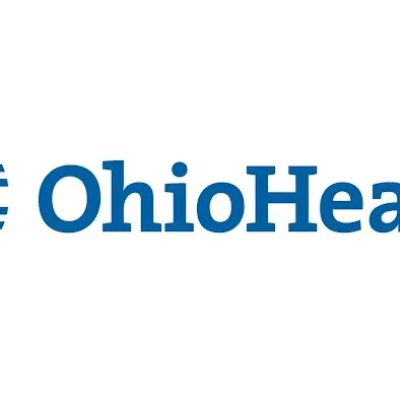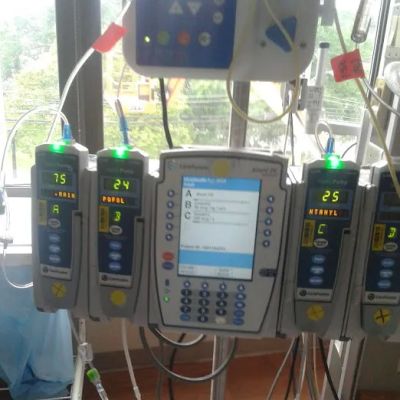1. How to Improve Heart Health After a Heart Attack
- Understanding Heart Attack Recovery
- The Importance of Lifestyle Changes After a Heart Attack
- Healthy Eating for Heart Health Post-Heart Attack
- Exercises for Heart Recovery and Strengthening
- Managing Stress and Emotions After a Heart Attack
- Real-Life Stories: Heart Attack Recovery Success
1.1 Understanding Heart Attack Recovery
Recovering from a heart attack can be a daunting process, but with the right approach, it is possible to regain strength and improve heart health. A heart attack, also known as a myocardial infarction, occurs when the blood flow to a part of the heart muscle is blocked, leading to damage. Once the immediate danger has passed, the focus shifts to recovery, which involves lifestyle changes, proper diet, and consistent exercise to help the heart heal and reduce the risk of future attacks.
Improving heart health after a heart attack is not just about managing symptoms but also about preventing further damage and rebuilding heart function. In this article, we will discuss key strategies to help individuals recovering from a heart attack regain their health, including changes in diet, exercise, stress management, and emotional well-being.

2. The Importance of Lifestyle Changes After a Heart Attack
Making lifestyle changes after a heart attack is one of the most critical steps in recovery. The heart is a resilient organ, but it requires proper care to function optimally after an injury. Here are some of the most important lifestyle changes to implement during the recovery phase:
Capital Health Medical Center – Hopewell
capital health medical center hopewell
1 Capital Way, Pennington, NJ 08534, USA

2.1 Quit Smoking and Limit Alcohol
Smoking is one of the leading causes of heart disease and can significantly slow down the recovery process after a heart attack. If you are a smoker, quitting is essential for improving heart health. Additionally, excessive alcohol consumption can increase blood pressure and contribute to arrhythmias (irregular heartbeats), which may complicate recovery. Cutting back on alcohol or eliminating it altogether can help prevent further stress on the heart.
2.2 Maintain a Healthy Weight
Carrying excess weight puts added strain on the heart and increases the risk of developing conditions like high blood pressure, diabetes, and high cholesterol, all of which are factors that contribute to heart disease. Achieving and maintaining a healthy weight through diet and exercise can significantly improve heart function and reduce the risk of future heart problems.
2.3 Monitor Blood Pressure and Cholesterol Levels
After a heart attack, it’s important to monitor your blood pressure and cholesterol levels regularly. High blood pressure (hypertension) and elevated cholesterol are significant risk factors for further heart damage. Medication prescribed by your doctor may help control these levels, but lifestyle changes such as a balanced diet, exercise, and stress management are also crucial for keeping them in check.
3. Healthy Eating for Heart Health Post-Heart Attack
A heart-healthy diet plays a crucial role in recovery after a heart attack. Proper nutrition helps lower blood pressure, improve cholesterol levels, and reduce inflammation. The key is to focus on foods that are rich in heart-healthy nutrients while avoiding those that can cause harm. Here's how to eat for optimal heart health:
3.1 Eat More Fruits and Vegetables
Fruits and vegetables are packed with vitamins, minerals, antioxidants, and fiber, all of which contribute to heart health. Aim to fill half of your plate with vegetables and fruits at every meal. These foods help reduce inflammation, lower blood pressure, and support healthy blood vessels. Leafy greens, berries, and citrus fruits are particularly beneficial.
3.2 Choose Whole Grains
Whole grains, such as oats, brown rice, quinoa, and whole-wheat bread, are rich in fiber and have been shown to improve cholesterol levels and lower the risk of heart disease. They also help stabilize blood sugar levels, which is important for overall cardiovascular health. Opt for whole grains instead of refined grains, which have been stripped of valuable nutrients.
3.3 Limit Saturated Fats and Trans Fats
Saturated fats, found in foods like red meat, butter, and full-fat dairy products, can raise LDL (bad) cholesterol levels and increase the risk of heart disease. Trans fats, found in many processed and packaged foods, are even more harmful and should be completely avoided. Instead, focus on healthy fats from sources like olive oil, avocados, and nuts, which support heart health by improving cholesterol levels.
3.4 Increase Omega-3 Fatty Acids
Omega-3 fatty acids, found in fatty fish like salmon, mackerel, and sardines, have been shown to reduce inflammation, lower blood pressure, and protect against arrhythmias (irregular heartbeats). If you are not a fan of fish, consider taking a fish oil supplement or incorporating plant-based omega-3 sources such as flaxseeds and walnuts into your diet.
4. Exercises for Heart Recovery and Strengthening
Exercise is an essential part of the recovery process after a heart attack. While it is important to start slowly and consult with a healthcare provider, regular physical activity helps strengthen the heart, improve circulation, and prevent future heart problems. Here are some types of exercises that can help in heart recovery:
4.1 Start with Light Activities
Immediately after a heart attack, rest is crucial, but light activities can gradually help improve heart function. Begin with simple, low-impact activities like walking or gentle stretching. These exercises will help improve circulation and increase your energy levels without overburdening your heart.
4.2 Gradually Increase Intensity
As your strength increases, you can gradually increase the intensity of your workouts. Aim for activities that raise your heart rate, such as brisk walking, cycling, or swimming. Cardiovascular exercises help strengthen the heart muscle and improve overall endurance. Aim for at least 30 minutes of moderate exercise most days of the week.
4.3 Incorporate Strength Training
Strength training exercises, such as light weight lifting or resistance bands, can help build muscle mass, improve metabolism, and support heart health. Be sure to get approval from your doctor before starting strength training, and gradually increase the weight or resistance over time as you gain strength.
5. Managing Stress and Emotions After a Heart Attack
After a heart attack, emotional well-being plays a key role in recovery. Stress and anxiety can negatively impact heart health by increasing blood pressure and contributing to inflammation. It is important to take steps to manage stress and support mental health during recovery:
5.1 Practice Relaxation Techniques
Techniques such as deep breathing, meditation, and yoga can help reduce stress and promote relaxation. These practices can also improve overall well-being, support emotional health, and lower blood pressure. Consider setting aside time each day to engage in a calming activity that brings you peace.
5.2 Seek Support from Loved Ones or Therapy
Heart attack recovery can be emotionally challenging, and seeking support from loved ones or a professional therapist can be incredibly helpful. Talking about your feelings, concerns, and experiences can help reduce anxiety and improve emotional health. Support groups for heart disease patients are also a great way to connect with others going through similar experiences.
6. Real-Life Stories: Heart Attack Recovery Success
Many individuals have successfully improved their heart health after a heart attack by making lifestyle changes. Take, for example, Mark, a 60-year-old man who had a heart attack. He made significant changes to his diet by incorporating more fruits, vegetables, and lean proteins into his meals while cutting back on unhealthy fats. Mark also started a daily exercise routine, focusing on walking and gradually increasing his intensity. His doctor reported significant improvements in his heart health, and he now feels stronger and more energetic.
Similarly, Jane, a 55-year-old woman, improved her heart health after a heart attack by focusing on stress management and adopting a heart-healthy diet. She found that practicing mindfulness and yoga helped her manage anxiety, and her heart health steadily improved over time. Jane is now more mindful of her diet, exercise, and emotional well-being, which has made all the difference in her recovery.
7. Conclusion
Improving heart health after a heart attack requires commitment, patience, and a holistic approach. By making lifestyle changes, focusing on a heart-healthy diet, incorporating regular exercise, and managing stress, you can significantly improve your heart health and reduce the risk of further complications. Remember, recovery is a journey, and every positive step you take contributes to a healthier heart and a brighter future.
For more tips, resources, and products to support your heart health journey, visit HeartCare Hub for expert advice and personalized recommendations.





















Deborah Heart and Lung Center
deborah heart and lung center
200 Trenton Rd, Browns Mills, NJ 08015, USA